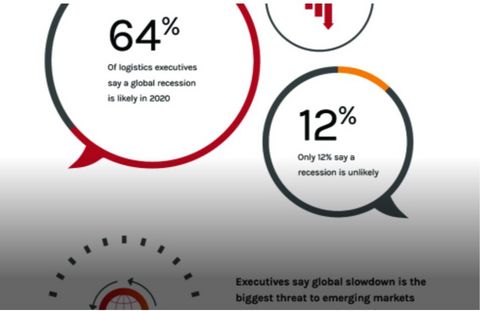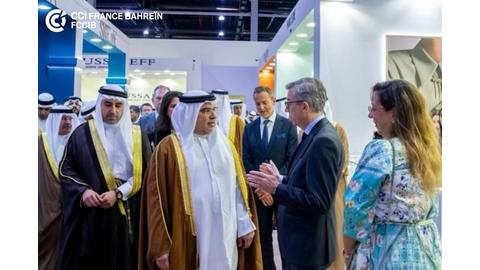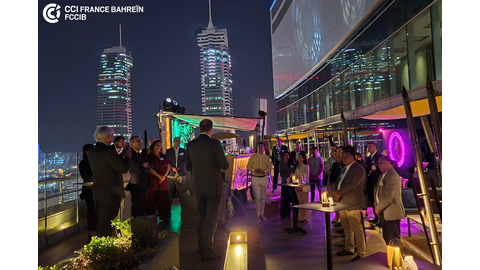Bahrain improves logistics competitiveness in key index

MANAMA: Bahrain ranks 15 globally in the 2020 Agility Emerging Markets Logistics Index and holds fifth position in improved business environment, climbing three spots compared to 2019.
Gulf countries outperform most other emerging market regions in the 11th annual Agility Emerging Markets Logistics Index, a broad gauge of competitiveness based on logistics strength and business fundamentals.
Business-friendly conditions and core strengths position several Gulf countries near the top of the index, behind giants China (1) and India (2), and alongside Southeast Asian nations.
In the Gulf, the UAE (No. 3), Saudi Arabia (6), Qatar (7), Oman (14), Bahrain (15) and Kuwait (19) rank highly. Among Asean countries, Indonesia (4), Malaysia (5), Thailand (9) and Vietnam (11) are strong.
“The Gulf nations continue to diversify, making steady progress in streamlining regulation and realising increased digital capabilities,” says Elias Monem, chief executive of Middle East and Africa for Agility GIL. “The entire region is growing and the outlook continues to be healthy as we enter the new decade.”
Agility’s annual survey of 780 supply chain professionals reveals overall pessimism about the world economy with 64 per cent saying a global recession is likely, and only 12pc of executives saying a recession is unlikely. Downward pressure on global trade volumes, uncertain growth prospects and the ongoing trade war between the US and China are driving this belief.
The index ranks 50 countries by factors that make them attractive to logistics providers, freight forwarders, shipping lines, air cargo carriers and distributors. The top 10 are: China, India, the UAE, Indonesia, Malaysia, Saudi Arabia, Qatar, Mexico, Thailand and Turkey.
China, India and Indonesia rank highest for domestic logistics; China, India and Mexico are top for international logistics; and the UAE, Malaysia and Saudi Arabia have best business fundamentals.
China and India, atop the 2020 rankings based on their size and strength as international and domestic logistics markets, lag behind smaller rivals in business fundamentals, a category that ranks countries based on regulatory environment, credit and debt dynamics, contract enforcement, anti-corruption safeguards, price stability and market access. In that area, China ranks No 8 and India is No 18.
Survey respondents see India as the market with greatest potential over China, their second choice. In rankings of best business conditions, several countries are making big moves: Egypt jumps 10 spots to #17; Ukraine jumps 10 spots to #27; Ghana drops 13 spots to #32; and Iran tumbles 12 spots to #38.
Forty-two per cent of those surveyed say a prolonged trade standoff between the US and China could benefit Southeast Asian countries, which offer manufacturing and sourcing alternatives to China. This is less, however, than 56pc who said last year that Southeast Asia would benefit.
Egypt, despite a brief period of social unrest in 2019, showed significant gains across all indices. On the overall index, Egypt rose six spots to No 20, while leaping 10 spots on the business fundamentals chart (17), six spots on the domestic opportunities index (13) and jumping five spots on the international opportunities index (23).
The top three factors that keep small businesses out of global trade are trade bureaucracy (17pc), government/border instability (14pc) and inability to compete with larger rivals (14pc), supply chain professionals say in the survey.
Despite the belief a recession is likely, emerging markets still grew an estimated 3.7pc in 2019 and are projected by the IMF to grow 4.4pc in 2020. As for what is driving emerging markets growth, 23pc say modernisation of customs systems and processes; 18pc cite increased Internet penetration; 16pc say modernisation of logistics provider systems (WMS, TMS, etc.); and 15pc mention increased adoption and modernisation of online payment systems.
The top five “megacity” emerging markets logistics hubs are Shanghai, New Delhi, Sao Paulo, Jakarta and Mexico City. Megacities – urban centres with populations of 10 million or more – require vast logistics support to meet domestic needs and engage in trade.
E-commerce fulfilment, in the survey, is the top choice for logistics services that are expected to maintain or improve growth, well ahead of other services such as domestic last-mile delivery and international express parcel delivery.
The countries with the least potential as logistics markets in 2020 are Syria, Iran, Venezuela, Iraq and Libya, according to the survey.
Source: http://www.gdnonline.com/Details/771245/Bahrain-improves-logistics-competitiveness-in-key-index


